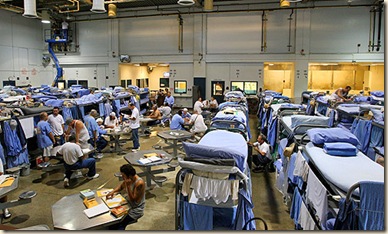Quote of the day:
Procrastination isn't the problem, it's the solution. So procrastinate now, don't put it off. - Ellen DeGeneres
It's always a mistake for me to look at blogs just before bedtime. I usually come across articles and/or issues that defy normal logic and/or thought.
Just when you thought EMRs were the answer to everything I come across this:
Proposal To Move to ICD-10 Coding System Stalled
An effort to adopt new health care coding standards that some experts say might be more compatible with electronic medical records has stalled, according to an industry group advocating the changes, Healthcare IT News reports.
Some organizations - such as the American Health Information Management Association and the American Hospital Association - say switching from the current ICD-9 clinical coding system to the ICD-10 clinical coding system would provide more accurate data that would be better suited to EMRs. However, AHIMA Vice President Dan Rode said the government does not appear to be taking action to update the coding system. "Until the government gives us a green light, we're not going to have vendors implement it," he added.
The cost of switching to the ICD-10 system is a major concern, Healthcare IT News reports. BlueCross and BlueShield Association officials said they are worried that updating the codes would be too costly, especially as providers work to comply with HIPAA regulations and attempt to adopt EMRs (Broder, Healthcare IT News, 3/7).
A report released in fall 2003 by BCBS said switching to ICD-10 could cost the health care industry up to $14 billion over two to three years. A RAND study commissioned by National Committee on Vital and Health Statistics found that hospital implementation of ICD-10 could cost from $425 million to $1.5 billion, plus $5 million to $40 million annually in lost productivity. The same report, however, found the benefits of adoption could range from $700 million to $7.7 billion (iHealthBeat, 11/6/2003).
AHIMA says that EMRs would not yield much benefit unless the code is updated, and the AHA wants to switch to ICD-10 because it says ICD-9 is outdated and does not allow for accurate coding, Healthcare IT News reports (Healthcare IT News, 3/7).
Now mind you, that was from March 2005. Jump forward to 2008.
On Friday, HHS issued a proposed rule that would require health care providers to adopt ICD-10 code sets for electronic health transactions by October 2011, Government Health IT reports (Ferris, Government Health IT News, 8/16).
Health care providers currently use ICD-9 code sets, which were developed about 30 years ago and no longer can be expanded effectively to include codes for new diseases and procedures. ICD-9 can accommodate about 17,000 codes, while ICD-10 had space for more than 155,000 codes (Health Data Management, 8/15).
In a statement, HHS Secretary Mike Leavitt said that adopting ICD-10 code sets is a necessary step toward developing a Nationwide Health Information Infrastructure. He added, "The greatly expanded ICD-10 code sets will enable HHS to fully support quality reporting, pay for performance, biosurveillance and other critical activities."
Acting CMS Administrator Kerry Weems acknowledged that the conversion would entail some additional costs, but he added that delaying the conversion only would increase such costs. Weems pledged to "work collaboratively across the health care system to ensure a smooth transition" (Government Health IT, 8










